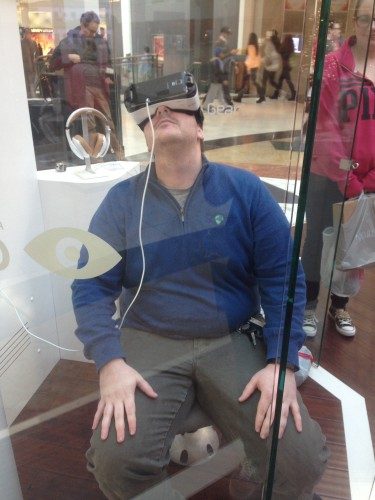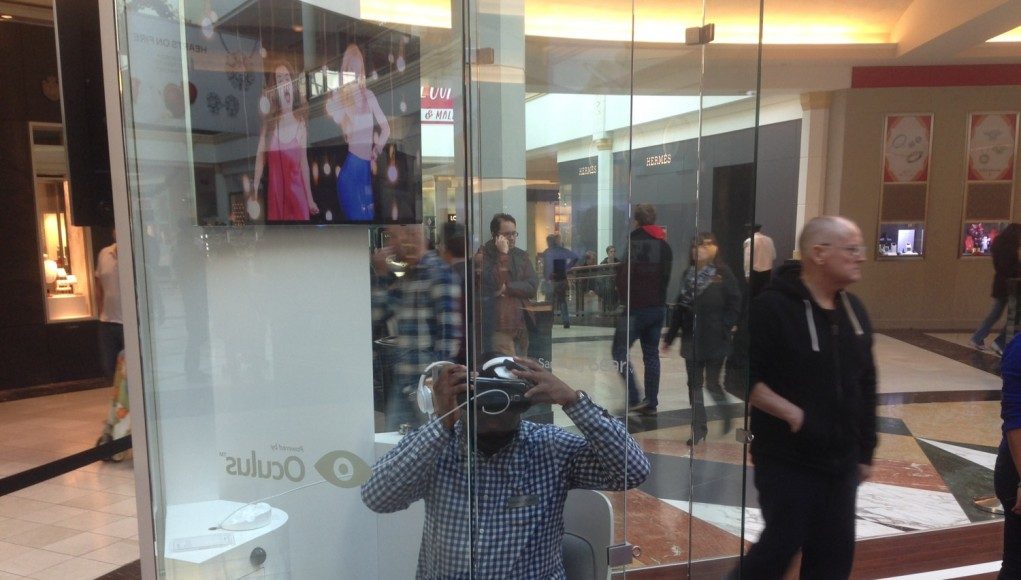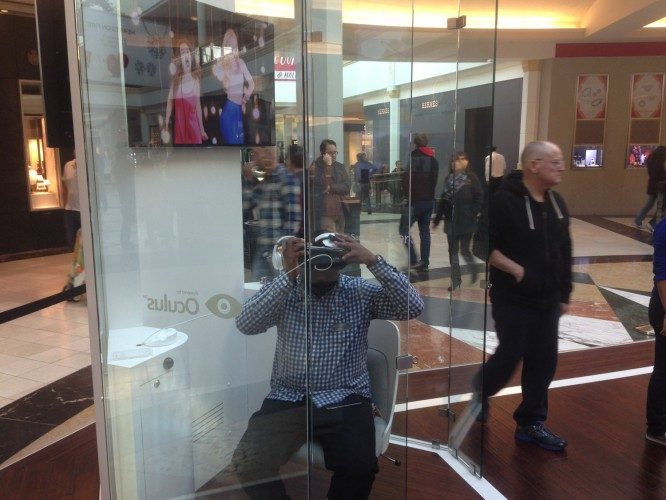One of virtual reality’s greatests strengths—that it’s a unique and unprecedented experience for most—is also one of its greatest weaknesses when it comes to marketing the technology. Without actually trying VR for themselves, how do you sell someone on the experience? Clearly this is known by Samsung as the company has taken their new VR headset to America’s largest mall to spread the word of VR.
While many are justly tempted to think that the Mall of America is the largest here in the U.S., oddly it’s the King of Prussia mall in southeastern Pennsylvania that takes the top spot by square feet—more than 2.7 million of them! (amazingly, it comes in only at 26th largest when you look worldwide).
At the King of Prussia Mall, Samsung has seen fit to install a pop-up booth in one of the mall’s busy corridor hubs. The pop-up booth lets shoppers get their hands on Samsung’s latest gadgets, including Gear VR—which takes up residence in a glass enclosed demo area which is branded with Samsung and Oculus logos.
See Also: Samsung Galaxy Note 4 Gets Biggest Discount Yet Just Before the Holidays
 Representatives at the pop-up booth said that it’s been in the mall since November and will be there until January 5th, allowing holiday shoppers a chance to experience the company’s first mobile VR headset, which launched in the U.S. earlier this month for $199. Users were asked to sign a waiver before sitting down in a swivel chair to try the headset. The Gear VR demo’er said this was in case users got dizzy.
Representatives at the pop-up booth said that it’s been in the mall since November and will be there until January 5th, allowing holiday shoppers a chance to experience the company’s first mobile VR headset, which launched in the U.S. earlier this month for $199. Users were asked to sign a waiver before sitting down in a swivel chair to try the headset. The Gear VR demo’er said this was in case users got dizzy.
Samsung has similar pop-up booths inside of Best Buy stores. While Samsung apparently shipped Gear VR demo units to the big-box tech store as early as September, we’ve yet to hear reports that Best Buy has actually put those units on display for the public to try. A pre-demo waiver signing was also mentioned as a requirement for the would-be Best Buy demos—it would seem that Samsung is quite fearful of people getting dizzy or somehow injured while using Gear VR.
Samsung is just the first of several major companies that will need to confront the challenges of marketing a technology that necessitates a try-before-you-buy approach. The good news is that regardless of what waivers need to be signed to get someone into a VR headset, first-timers are almost universally wowed by the experience.
Special thanks to Austin C. for visiting Samsung’s King of Prussia pop-up booth.









